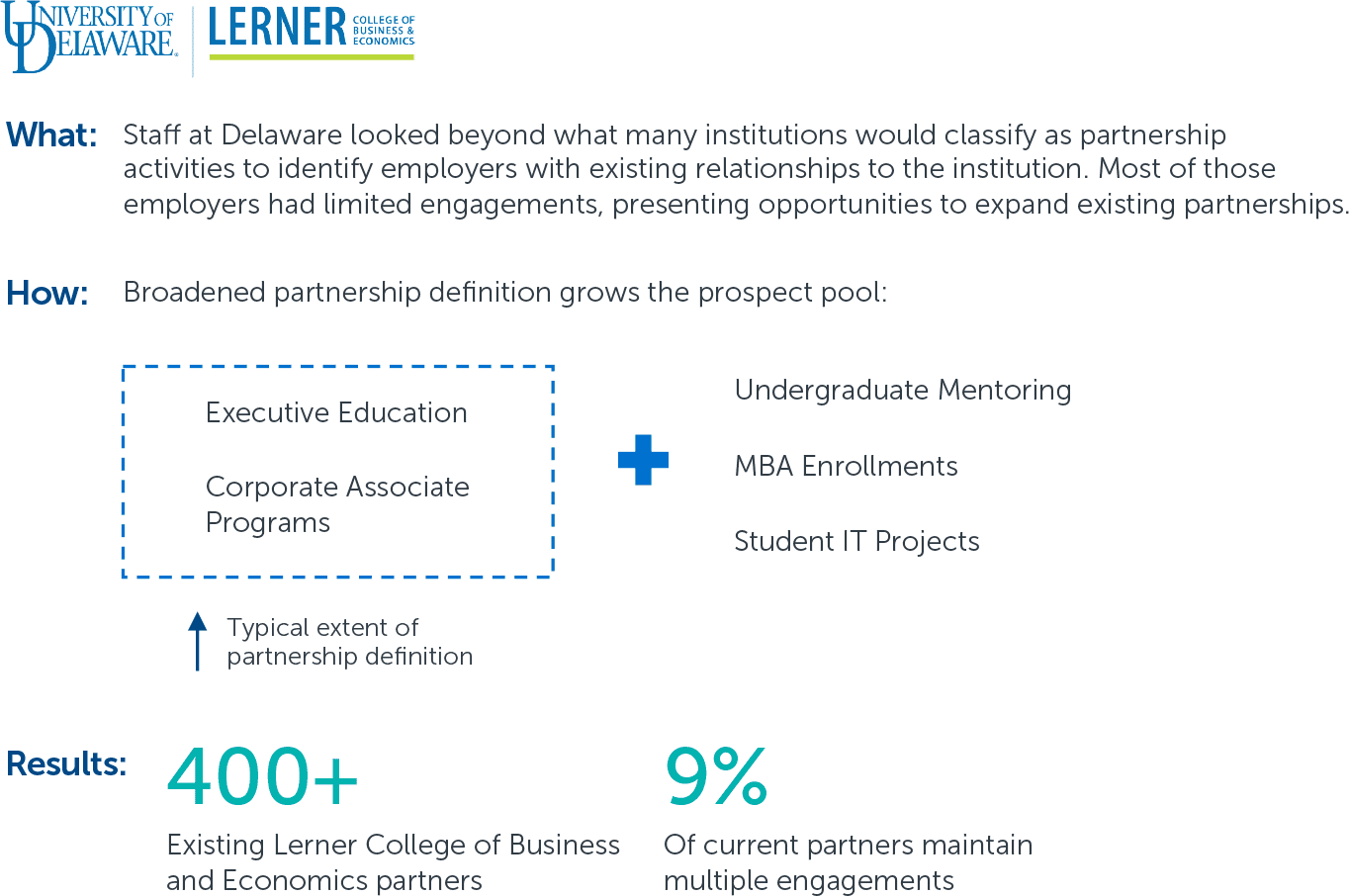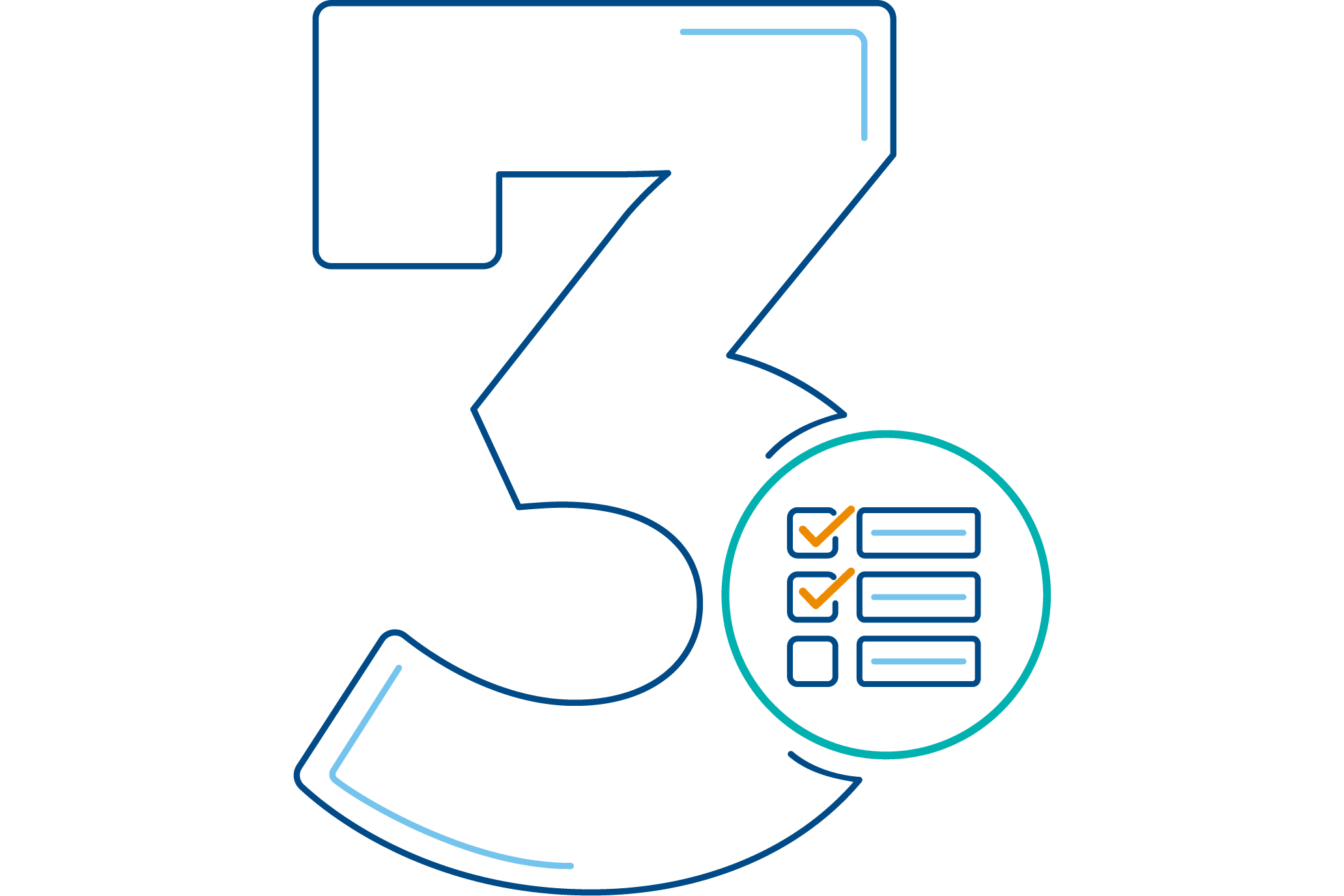Identify High-Potential Employer Partners and Plan Your Pitch
Most professional and adult education teams make the same mistakes when considering potential partners: they waste resources chasing attractive but hard-to-access brands, spend time cold calling with little success, or wait for inbound interest, allocating scarce staff time to evaluating often lackluster leads. Successful institutions use data to identify high-potential partners and strategically plan their pitch around an employer’s specific needs.

Catalog pre-existing relationships to identify high-potential partners
Internal data offers warm leads for employer partnerships, but often goes overlooked. Examine enrollments across your professional and adult education portfolio to find companies enrolling multiple employees. Review relationships across the institution, like companies sponsoring projects or mentoring undergraduate students, to find potential partners already connected to your institution.
Louisiana State University Continuing Education analyzes non-credit enrollment data to find companies enrolling multiple employees. Staff then survey these students to help develop a customized partnership pitch. The University of Delaware Lerner College of Business and Economics grows training relationships by focusing on companies already involved with the College in small ways.


Assess employer needs to provide focused trainings
Employers rarely articulate specific training needs; more often, they express a need for vague skills like critical thinking and communication. When they are specific, company leaders might articulate the same key business program in vastly different ways: a technology officer might advocate for increased IT investment, while an HR officer would shift focus to deficiencies in corporate culture. Misidentified employer problems lead to poor program design and low employee engagement, decreasing the likelihood of repeat engagements.
A pre-pitch assessment can identify employer needs. Use a pre-determined list of questions and ask an HR representative about specific learning objectives, key influencers and sponsors, and audience for the training.

Approach employers at points of critical training need
Learn more about how a company operates to deliver a partnership pitch when it will be received well. Employers might reject even a well-researched pitch if they hear it at a bad time in their budget or training cycle. Good things to know before a pitch are:
- The company’s budget cycle (when training dollars get allocated)
- The company’s performance review period (when goals and development plans are decided)
- Upcoming new staff cohort start dates
- Recent or upcoming leadership transitions
Deliver proposals at the times when an employer will most need your services.

More Resources

GenAI Employer Interview Guide

Employer Demand Profiles
